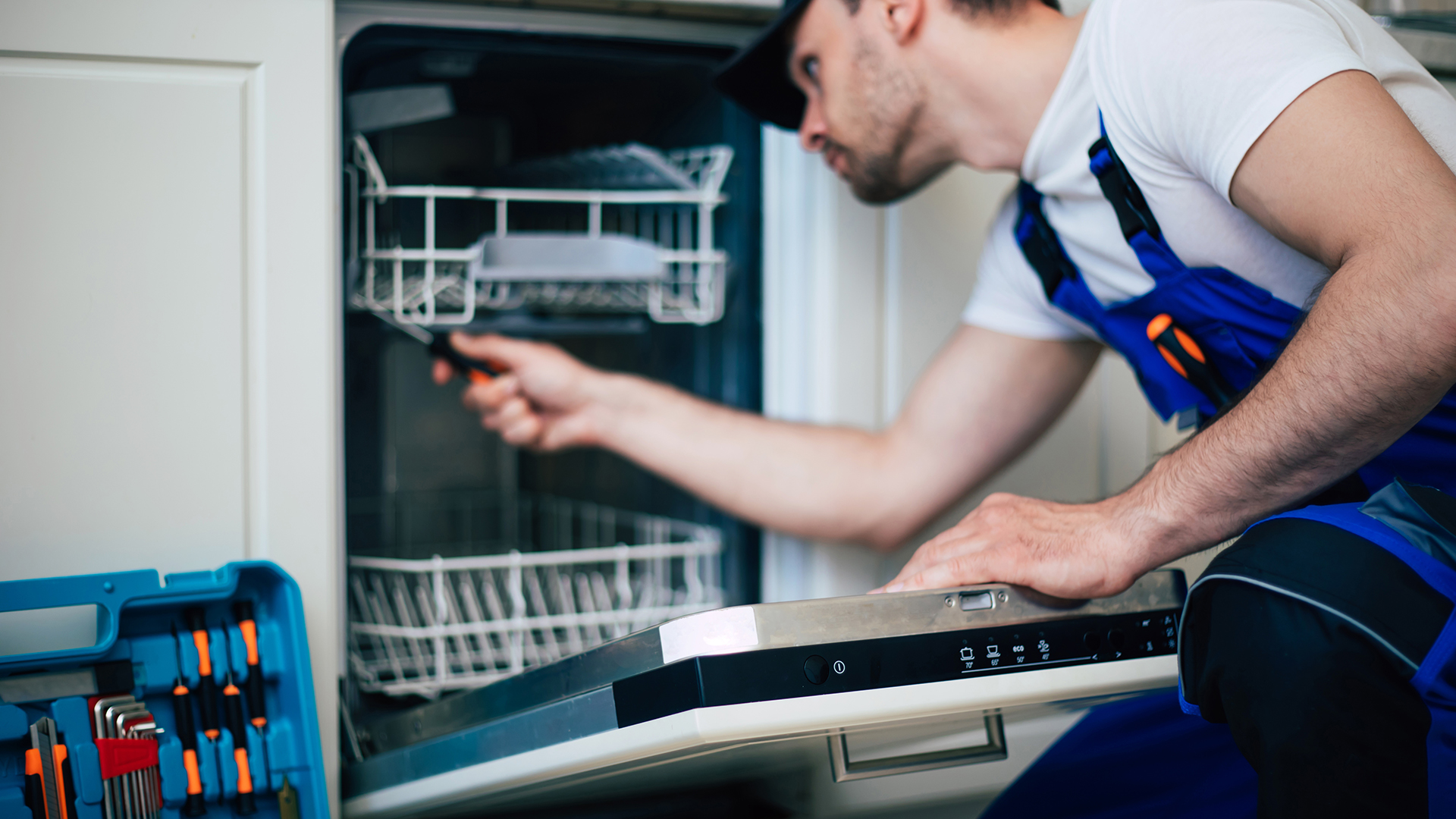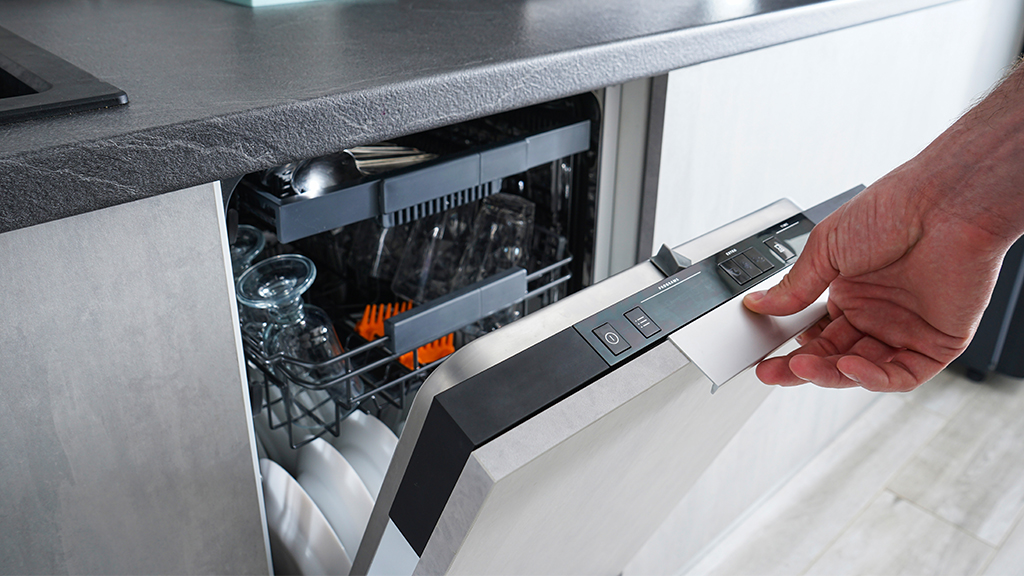Exploring Appliance Problems: Why You Should Know
Course DetailThe article which follows on the subject of How to Troubleshoot & Repair a Dishwasher is extremely insightful. You should investigate for yourself.

Having your dishwasher malfunction or breakdown can be a big deal as well as cause some discomfort in your home. Dish washers are equipments that we use to clean recipes and flatwares instantly to save us the stress and anxiety of by hand doing it.
Like every other maker that relieves human effort, dishwashers can break down and create some fault at some point in time. There are numerous mistakes your dish washer could develop, and also while some of them can be solved by replacing some parts or repairing them, various other much more extreme flaws will certainly require that you get a new dishwashing machine.
This write-up will certainly recognize a few common faults your dish washer could establish to prevent its total performance and how these faults can be resolved.
Typical Mistakes
Usual dishwasher faults might range from small to significant ones. Depending on the extent, you will either need the solutions of specialist plumbers to repair or replace it.
A few of the most usual mistakes consist of:
Dripping Dishwasher
This is probably the most everyday dishwasher problem, and fortunately is that it is easy to recognize. Leakages occur due to several factors, and also the leaks can bungle your kitchen area. Typical root causes of dishwashing machine leakages include;
If your recipes as well as cutleries come out of the dishwasher as well as still look unclean or unclean, your spray arms may be a problem. Oftentimes, the spray arms can get obstructed, and it will certainly need a fast tidy or a substitute to function successfully once more.
Lack of ability to Drain
Sometimes you might notice a huge amount of water left in your bathtub after a laundry. That is possibly a drain trouble. You can either inspect the drainpipe hose pipe for problems or obstructions. When doubtful, get in touch with a specialist to have it checked as well as fixed.
This is another typical dishwasher issue, and it is generally caused by food debris or grease remaining in the equipment. In this situation, seek these particles, take them out as well as do the recipes without any dishes inside the maker. Clean the filter completely. That will certainly help do away with the negative smell. Guarantee that you get rid of every food fragment from your dishes before moving it to the machine in the future.
Final thought
Several of these usual dishwasher faults can be taken care of conveniently at home, but sometimes, the mistakes could be huge and also might require the interest of experts. If you stay in Rochester, Syracuse, and also various other parts of America, allowed the specialists correctly detect what could be wrong with your dish washer and proffer a remedy.
We also install dish washers if you simply acquired a brand-new one or intend to replace your own. With our years of experience in the industry, we make sure to offer you the most effective possible services.
8 Most Common Dishwasher Problems & How to Fix Them
My Dishwasher Isn't Draining
If your dishwasher isn't draining properly, you may be having an issue with your dishwasher's drainage system. This can be caused by a variety of issues:
Clogged drain: The dishwasher's drain may be clogged with food particles or other debris. Malfunctioning pump: The dishwasher's pump is responsible for moving water through the system and out of the drain. If it's damaged or not working correctly, it could cause a drainage failure. Broken or clogged hose: The dishwasher's drain hose may be broken or clogged, causing water to back up in the system. How to Fix Dishwasher Not Draining
Check the drain for any blockages. A clogged or kinked hose will prevent water from properly draining out of the dishwasher. Use a plunger or a pipe snake to clear any debris that may be blocking the drain. Check the dishwasher's pump for damage or malfunction. Consult the manufacturer's manual or call a professional appliance repair service if you think the pump may be the issue. Check the drain hose for any damage or blockages. The hose should be straight and free of any debris or kinks. Check the drain pump filters for any blockages if the hose is clear, but the dishwasher is still not draining. Some dishwashers have filters that can become clogged with food particles or debris. Cleaning or replacing the filters may help resolve the issue. Run a dishwasher cycle to make sure the water is properly draining out. My Dishwasher Is Leaking
A leaking dishwasher can be frustrating. There are a few possible causes that you can investigate to try and diagnose the issue:
Inspect the dishwasher for any visible signs of damage or wear and tear. Look for cracks or holes in the door and around the rubber seal. Check the hoses and pipes connected to the dishwasher for any signs of leaking. If there is no visible damage, you may hear the sound of water dripping or the sound of the water pump running. This might mean a problem with the water inlet valve or the drain pump. You may also notice a puddle of water on the floor near the dishwasher. This could indicate a blocked drain hose or a faulty drain pump. Finally, check the seals around the door and the door for any signs of damage, wear and tear, or improper installation. If any of these issues are present, they must be fixed immediately to avoid further water damage. How to Fix a Leaky Dishwasher
Identify where the leak is coming from. The most common places for a dishwasher to leak include the door, hoses, and pump. If the leak is coming from the door, the gasket or seal may need to be replaced. If the leak is from the hose or pump, the damaged parts should be replaced with new ones. Finally, check all the connections and make sure they are secure and not leaking How to Fix a Dishwasher That Won't Start
The perfect remedy for a dishwasher that won't start is confirming all the components are in perfect working order and that the wiring is in good condition. Next, inspect the motor and replace it if necessary.
If these steps do not resolve the problem, contact a professional appliance repair technician to diagnose and fix the issue.
Conclusion
Most dishwashers are reliable appliances with a long lifespan. As with all devices, checking your dishwasher regularly will help you quickly identify any issues and ensure that it is running efficiently.
And if you're in the market for a new dishwasher, don't let dishwasher problems ruin your day. Upgrade to a reliable, efficient model today! Check out our full selection of top-quality dishwashers that includes a range of styles and features to suit any budget and household needs.
https://www.coastappliances.ca/blogs/learn/common-dishwasher-problems

I was made aware of that article on The Most Common Dishwasher Problems from an associate on another web address. Loved our blog posting? Please share it. Help another person check it out. I praise you for your time. Visit again soon.
Immediate inquiry? Reach.